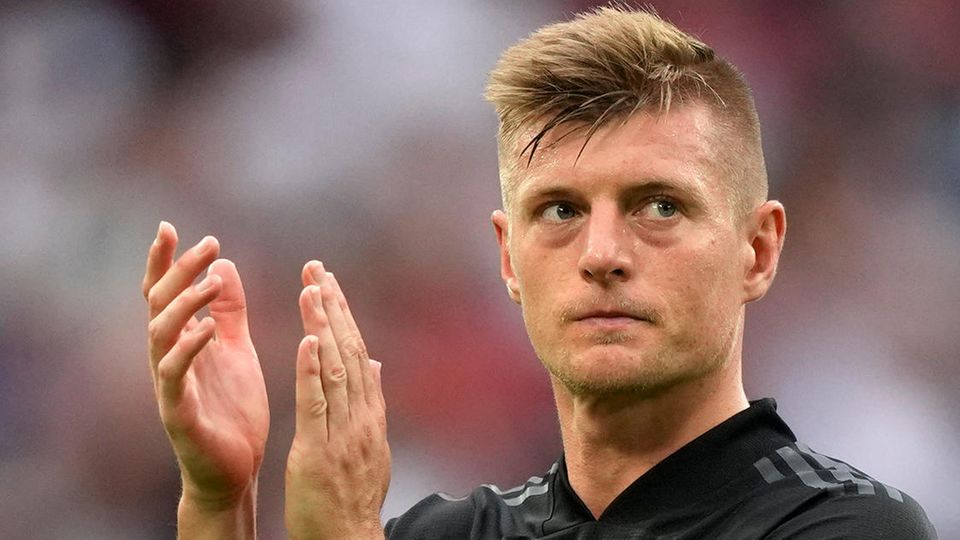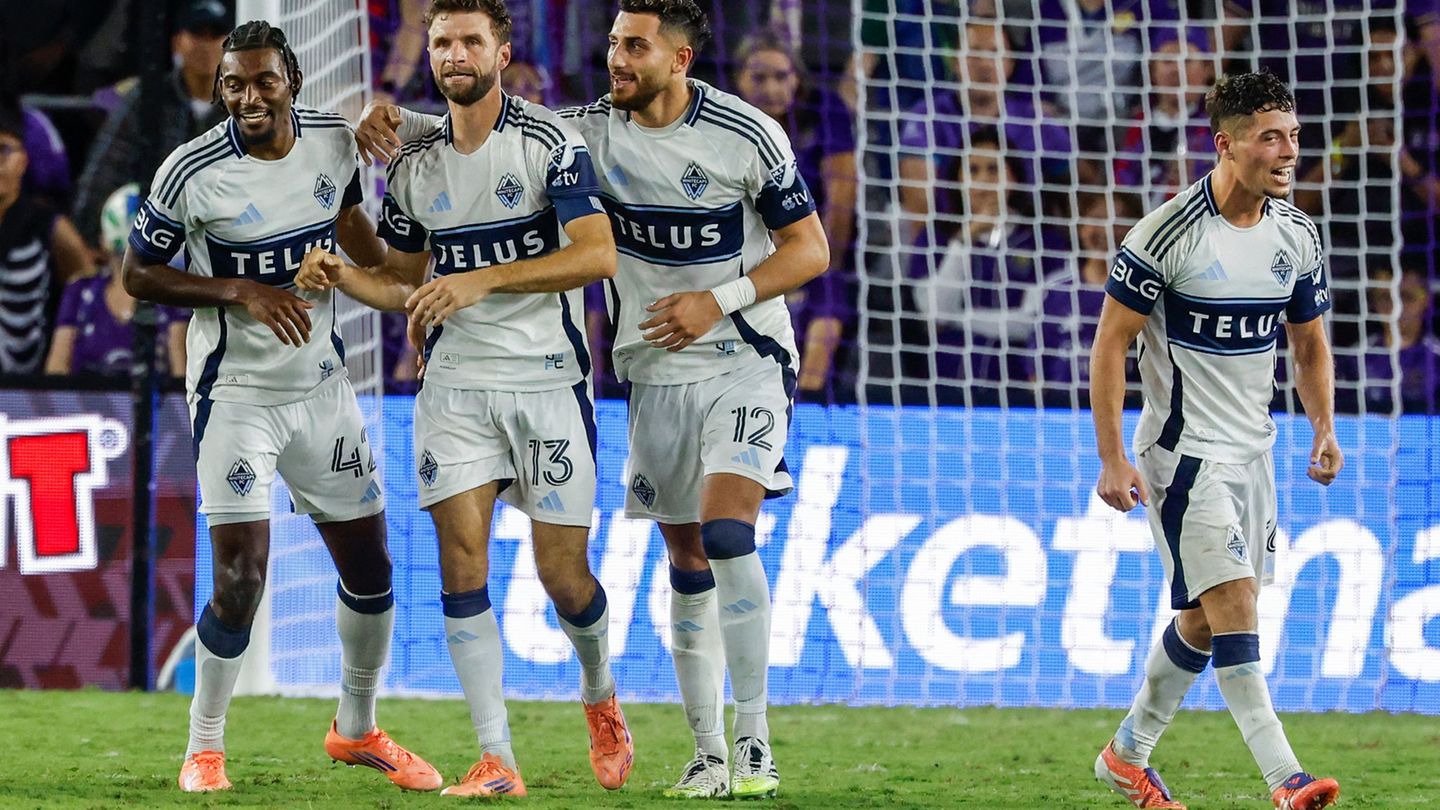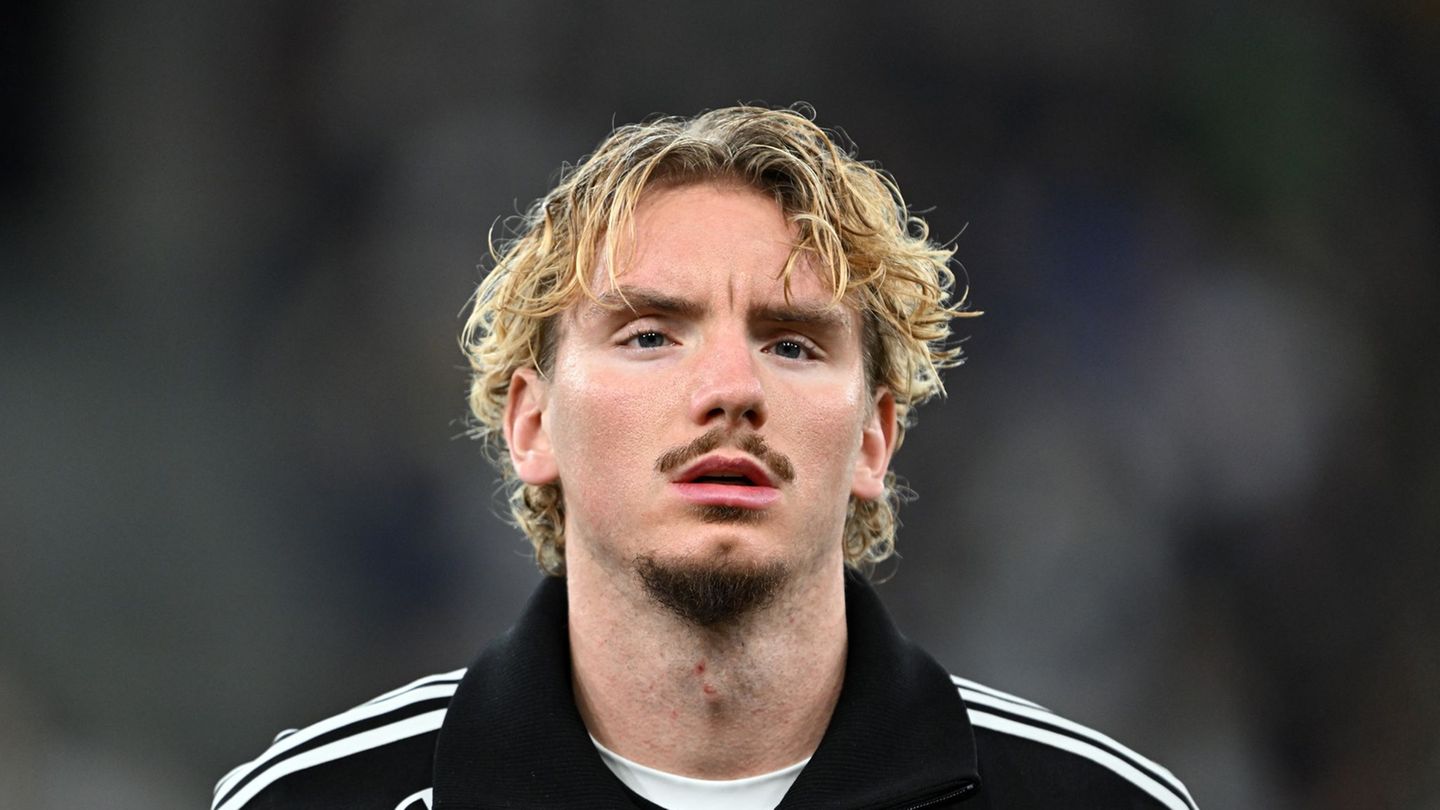Everything on restart. After the end of the Löw era, a new chapter began for the national team. Can it also be a new beginning? With Hansi Flick, there is now a successful coach. What still gives hope?
With the knockout of the last 16 at the EM, a German national team disappointed for the first time in its glorious history at two major tournaments in a row. No doubt, the golden days are over for now. On August 1st, Hansi Flick takes over “the team”. The 56-year-old, who is considered by many to be the co-architect of the 2014 World Cup, does not start from scratch, but with him not everything will immediately turn into gold.
What is hope?
Hansi Flick, the player-whisperer
Whether it is a good sign that “the team” s greatest hope for better times is the person of the coach remains to be seen. But Hansi Flick brings with him what was recently no longer at home in the DFB entourage: positive attitude, the will to succeed, victories. The way in which he made the staggering permanent champions FC Bayern legs and with six titles made the 2019/20 season the most successful of the club’s history, which was already peppered with title wins, was impressive. Above all: Flick knew how to motivate and get the best out of the professionals. This is exactly what the national team now needs – not least because professionals at the absolute world level do not allow themselves to be baked.
Different coaching
Jogi Löw always found it difficult to change his basic concept. The wild substitutions in the England game at a time when nothing could be done for a long time are just the latest example. Reacting during the game and being able to give your own team new impulses at the right time is one of the strengths of the new coach. Of course, Hansi Flick has to prove that to the DFB team first.
Kader definitely has potential
Sure, the team is a long way from being in the class of the 2014 world champions, that’s unmistakable. But even if it may not be enough for titles at the moment, with the ranks of other nations currently in the EM quarter-finals (Denmark, Switzerland, the Czech Republic, Ukraine), “the team” can always compete, should the names even be stronger be. When Sané and Werner can finally (again) show their strengths, Kimmich or Müller play in positions where they are really effective, and new players like Florian Neuhaus and the top talent Jamal Musial can finally show their skills on a regular basis, then they should Bloodless appearances like against England or bad embarrassments like the 1: 2 against North Macedonia in the World Cup qualification are no longer an issue. Quite a few of these players have not yet reached their zenith. A shot of “German virtues”, that is, determination and fighting power, can’t hurt either.
Learn from Stefan Kuntz
Coach Stefan Kuntz has led the U21s, the direct substructure of the national team, to the European Championship twice in a row; one more time to the final. Most recently, he managed to do this with a selection that consisted primarily of second division players and young talents who were looking for their chance abroad. This squad didn’t have a chance for the title, Kuntz saw it that way too, and yet they took it. Kuntz has managed to form a conspiratorial troop out of the players and to revive the myth of the “tournament team”. That is also possible with the senior national team. Even former world or European championship teams have not always kicked brilliantly. It is to be expected that the exchange between Kuntz and Flick will be revived that last fell asleep between Kuntz and Löw.
What makes you doubt?
Little comes after
Last year, statements from U21 success coach Stefan Kuntz made people sit up and take notice. There are hardly any players in the Bundesliga who are eligible to play for the youngsters of the national team. “We are so left behind,” said Kuntz, referring to the other top leagues in Europe. That’s why there was hardly any reason to talk to Löw in the end. In 2017, however, ten to twelve players had to vote before the Confed Cup, which the DFB selection won, and the U21 EM, which won the DFB selection. There is nothing left of that. This is where the Bundesliga clubs are challenged, but they have to bet on quick success – and spend a lot of money on exceptional foreign talent. Glimmer of hope: Kuntz still managed to win the U21 title again.
No alternatives on the defensive
It is remarkable that the DFB-Elf conceded more goals than scored during the European Championship. For years the once eternal showpiece of the national team has been gone – the defensive, with the exception of the goalkeeper. Not only heavyweights like France, Portugal and England are able to counter the Germans at any time, but also the Hungarians and even underdog North Macedonia in the World Cup qualification. Even the return of Mats Hummels couldn’t change that. In the short term, moving away from the triple chain could help, but what then? Apart from Niklas Süle from FC Bayern, who has seldom been able to convince in a black and white jersey, hardly anyone pushes himself. In the Bundesliga you often rely on foreign stars and there was no player from a big club in the U21 defense either. Overall, however: no Hummels, no Boateng, certainly no lame – nowhere.
The penalty area striker is missing
The same goes for the storm. The fact that the DFB-Elf is not developing much power at the moment is not least due to the fact that a penalty area striker of international class is completely absent. A new Miro Klose or at least a new Mario Gomez is nowhere in sight. Tearing a game around with the notorious crowbar is almost impossible for the German team – especially since the strong strikers Sané, Gnabry or Havertz lack the real “killer instinct” that characterizes real goal scorers. National team manager Oliver Bierhoff addressed the problem himself at Löw’s final press conference. Countermeasures have been discussed, said Bierhoff, but that will take just as much as in defense.
WM comes too early
On August 1st, Flick took up his post, and on September 2nd, the first international match was due. It’s about to be a competitive game in World Cup qualification. So Flick and “the team” don’t have much time to reposition themselves. Since the 1: 2 disgrace against North Macedonia, the DFB team is also behind in the qualifying group. Nevertheless: Against Liechtenstein, Armenia and Iceland nothing should burn with renewed courage. The World Cup in Qatar is scheduled for next year. It is quite possible that Flick will postpone the new beginning again and continue to bet or have to bet on Hummels, Müller and Kroos. Seen in this way, the World Cup comes too early. The fact that there will be a third disappointing tournament in a row is anything but impossible.
I have been working in the news industry for over 6 years, first as a reporter and now as an editor. I have covered politics extensively, and my work has appeared in major newspapers and online news outlets around the world. In addition to my writing, I also contribute regularly to 24 Hours World.




